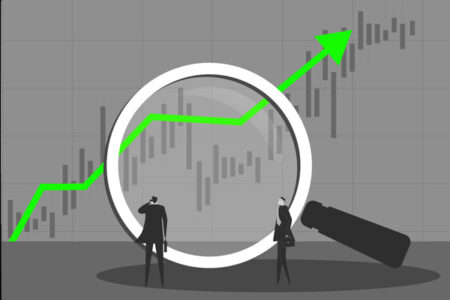
Surprisingly, at the present time when the world is at war in greater Europe and in the Middle East with the potential for catastrophic miscalculation in the Far East, the investment markets are acting as if “peaceful” times for business are just around the corner. In peaceful times investors tend to be “greedy,” on the scale of “greedy versus fearful,” and invest in those asset classes that they won’t invest in when “fearful.” The private equity market is trying to prepare itself for that relaxation in investor caution. Of the “estimated $275 trillion to $295 trillion of global assets under management, roughly 50% are held by individual investors.”[1]
What’s the current state of the US private equity market? “Sustained higher interest rates, inflation…damped deal and exit activity”[2] in 2023. Exits have been extended for years. “The growing need for liquidity options will likely drive an explosion in continuation funds that provide cash-out opportunities and secondary sales by fund investors.”[3]The investment community’s hope is that individual investors will step in to help.
What should those individual investors look out for? Look for investments that follow the rules, know what “return” you should expect for the additional risk taken and, if entering a secondary offering, know how the assets are valued. One hot investment area is artificial intelligence (AI) (see QMP Summer 2023). Massive funds are being raised to invest in AI start-ups. The “rules” currently being broken are: using “equity dollars for capital expenditures” and “avoiding over-reliance on fast-moving incumbents.”[4] The capital expenditures are for “computing infrastructure,” which is scarce. “Right now, it’s a land grab. Everyone is operating to stay in business and we’ll figure out the economics later.”[5] And many start-ups, relying on large language models, use a fast-moving incumbent, OpenAI, which can change terms and prices[6] on them unexpectedly.
As our readers know, our preferred shorthand valuation metric is that a good private equity investment should return two to three times your money in a relatively short period, say five years. Our method is an abbreviation of the established valuation methods of measuring the internal rate of return and multiples of invested capital combined with comparison to a benchmark. The current evolution is to benchmark to the public markets rather than to some private equity metric. This search for a new metric is driven by some institutional investors who wonder, “if you can’t generate significant returns in your private-equity program over public equity alternatives, then why are you taking all the risks associated with private equity, including illiquidity?”[7]
Lastly, how do you value illiquid investments? Cautiously, as you don’t want to frighten the investors or lower the fees charged. “Valuing private companies isn’t an exact science at any time, and there are a variety of ways to do that accounting. A prolonged period of illiquidity and a dearth of follow-on financing into start-ups has created greater differences of opinion on appropriate marks because there is no market event to indicate a new valuation. Ultimately the true value of the shares of a company is only known at the time they are sold.”8 As of June 30, 2023, “one-year net returns for US Venture Funds stood at negative 10.34%.”[9]
The industry participants must hope that an expected flood of individual dollars into private equity buoys values enough to hide the problems.
Falling Short of Human Capacity for Insight
On artificial intelligence (AI), the large language models search the vast repositories of accumulated knowledge (mostly still from digitized books), looking for clues that have been ignored or relationships previously missed. Over time, the accumulated input from people using the programs will add to the knowledge base. At the present time, the extraction programs “fall short of the human capacity for insight.”[10] That may change but is not the biggest danger. “The danger of AI isn’t that it will learn to think. It cannot and will not. The danger is that it can be taught to lie (although it will never ‘know’ that it is lying). One simply needs to load the database with bad data.”[11]
LME Nickel Meltdown Revisited
Sometimes a decision by a court of law settles issues and sometimes an issue still seems unsettled. Recently a lower court in the United Kingdom upheld the right of the London Metal Exchange (LME) to cancel trades on its nickel exchange after they had been made.[12] Our Spring 2022 QMP discussed the March 2022 “meltdown” on the LME nickel exchange, observed the Exchange’s links to the Chinese government and to the Chinese firm that was the likely big loser in the meltdown, if trades were not cancelled. Our point at the time was that the Endowment Model encourages investors to participate in markets, say commodities, that have complexities hidden from even sophisticated investors who may not have detailed knowledge of how commodities markets work and, in this case, how they don’t work for even knowledgeable, sophisticated investors.
The point can be made, again, that investors are well served by investing in operating companies whose managements understand the markets for their raw materials as well as anyone can.
We know that you are the most valuable business development tool that we have. Your referral of a friend, colleague or family member to us is the most important way that we grow. We thank you for your support and want you to know that we are dedicated to serving your best interest.
William H. Darling, Chairman & CEO
Adrian G. Davies, President
1 Isaac Taylor, “JP Morgan Private Fund Is Tailored to Individuals,” WSJ, 10/11/2023, p. B12
2 Maria Armental, “Private-Equity Exits Decline,” WSJ, 10/12/2023, p. B10
3 Ibid.
4 Yuliya Chernova, “Firms Break Venture Rules for AI,” WSJ, 11/21/23, p. B2
5 Ibid.
6 Ibid.
7 Luis Garcia, “Private-Equity Investors Seek Better Gauge,” WSJ, 12/22/2023, p. B7
8 Yuliya Chernova, “Limited Partners Doubt Venture Startup Values,” WSJ, 01/.3/2024, p. B9
9 Ibid.
10 Holman W. Jenkins, Jr., “Capitalism Works, Says ChatGPT,” WSJ, 11/22/2023, p. A15
11 Jim Martin, “AI Won’t Learn to Think. It’ll Be Taught to Lie,” WSJ Letters, 01/11/2024, p. A14
12 Yusuf Khan and Joe Wallace, “London Metal Exchange Wins Fight on Nickel,” WSJ, 11/30/2023, p. B10
